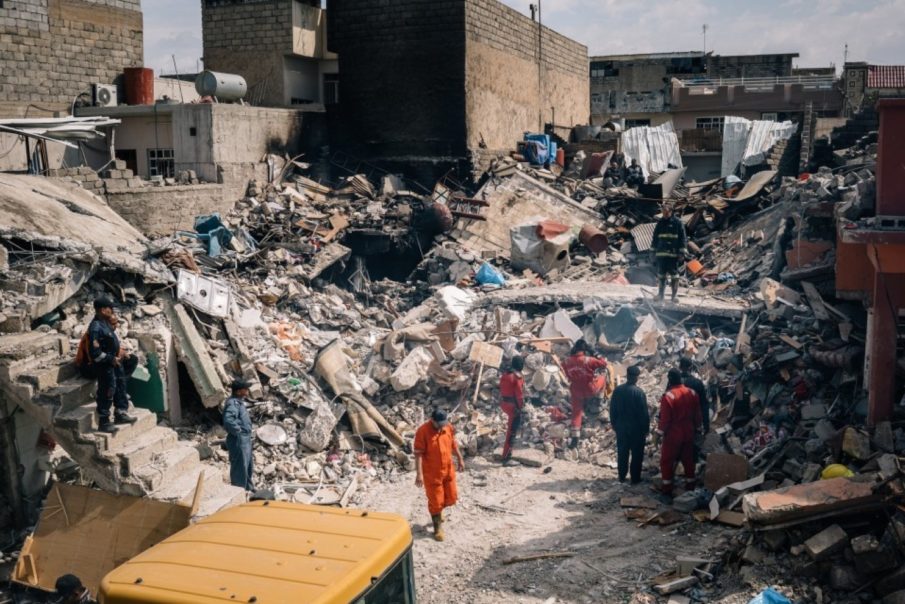The United States has officially acknowledged that an American airstrike in the ISIS controlled city of Mosul, Iraq was potentially responsible for the death of over a hundred Iraqi civilians earlier this month.
Per an “initial review” released by the Defense Department, coalition fighters engaged targets directed by Iraqi Security Forces on March 17th, “at the location corresponding to allegations of civilian casualties.” According to reports emerging from Iraq, as many as 137 civilians may have been killed in the ensuing strike.
According to Iraqi officials, eighty-three bodies had been pulled from the rubble, including those of women and children, by sundown on Saturday with continued excavation ongoing. The U.S. military has announced that they have opened a full investigation into the incident.
These new allegations arose as the U.S. launched another investigation regarding coalition air strikes, this time after the bombing of a building adjacent to a mosque in Syria led to local activists accusing the U.S. of targeting innocent civilians with their strikes. Activist groups such as the U.K. based “Airwars” have used these recent incidents to draw attention to what they call a “surge of U.S. linked deaths in Iraq and Syria.” According to Airwars, at least a thousand civilians have been killed in the past month by coalition forces.
Military officials were clear that no policy changes have taken place in the recent past that could result in a sharp uptick of civilian deaths in the ongoing fight against ISIS in Iraq and Syria, but the quick succession of airstrikes that have resulted in large numbers of civilian casualties have prompted some to accuse the U.S. government of becoming less concerned with collateral damage under President Trump. While civilians were harmed in airstrikes under the Obama administration, President Trump’s public consideration for torture and discussions regarding loosening operational restrictions on U.S. forces engaged with the terrorist organization seem like too much of a coincidence in the minds of activist groups.
According to a statement released by the U.S. led coalition, their goal is always “zero civilian casualties.”
“But the coalition will not abandon our commitment to our Iraqi partners because of ISIS’s inhuman tactics terrorizing civilians, using human shields, and fighting from protected sites such as schools, hospitals, religious sites and civilian neighborhoods,” the statement read.
According to the statement, strikes such as the March 17th attack in Mosul are usually reviewed and approved by General level commanders in Iraq or elsewhere in the Middle East, and are not subject to review or approval by the executive branch of the government, namely the president. Strikes that target specific individuals are often planned much further in advance and may require presidential approval – such as the Yemen raid that saw one Navy SEAL lose his life last month.
According to residents, ISIS fighters moved families into the area as they began using it to stage attacks on Iraqi security forces. Their intent was to prevent coalition air strikes from bombarding the area, as they know the rules of engagement will force serious consideration before attacking an area with a dense civilian populous.
“They have a new style of fighting, which is a heinous one,” said Iraqi counterterrorism commander Lt. Gen. Abdul Ghani al-Assadi. “They gather civilians into a house where they are fighting so we will request an airstrike and then they will die with the civilians.”
Rescue attempts were hindered by a lack of emergency response personnel and poorly equipped first responders – due in large part to ISIS control of the area. By the time emergency workers from Baghdad were able to arrive days later, there was little hope of finding any survivors.
Already have an account? Sign In
Two ways to continue to read this article.
Subscribe
$1.99
every 4 weeks
- Unlimited access to all articles
- Support independent journalism
- Ad-free reading experience
Subscribe Now
Recurring Monthly. Cancel Anytime.










COMMENTS